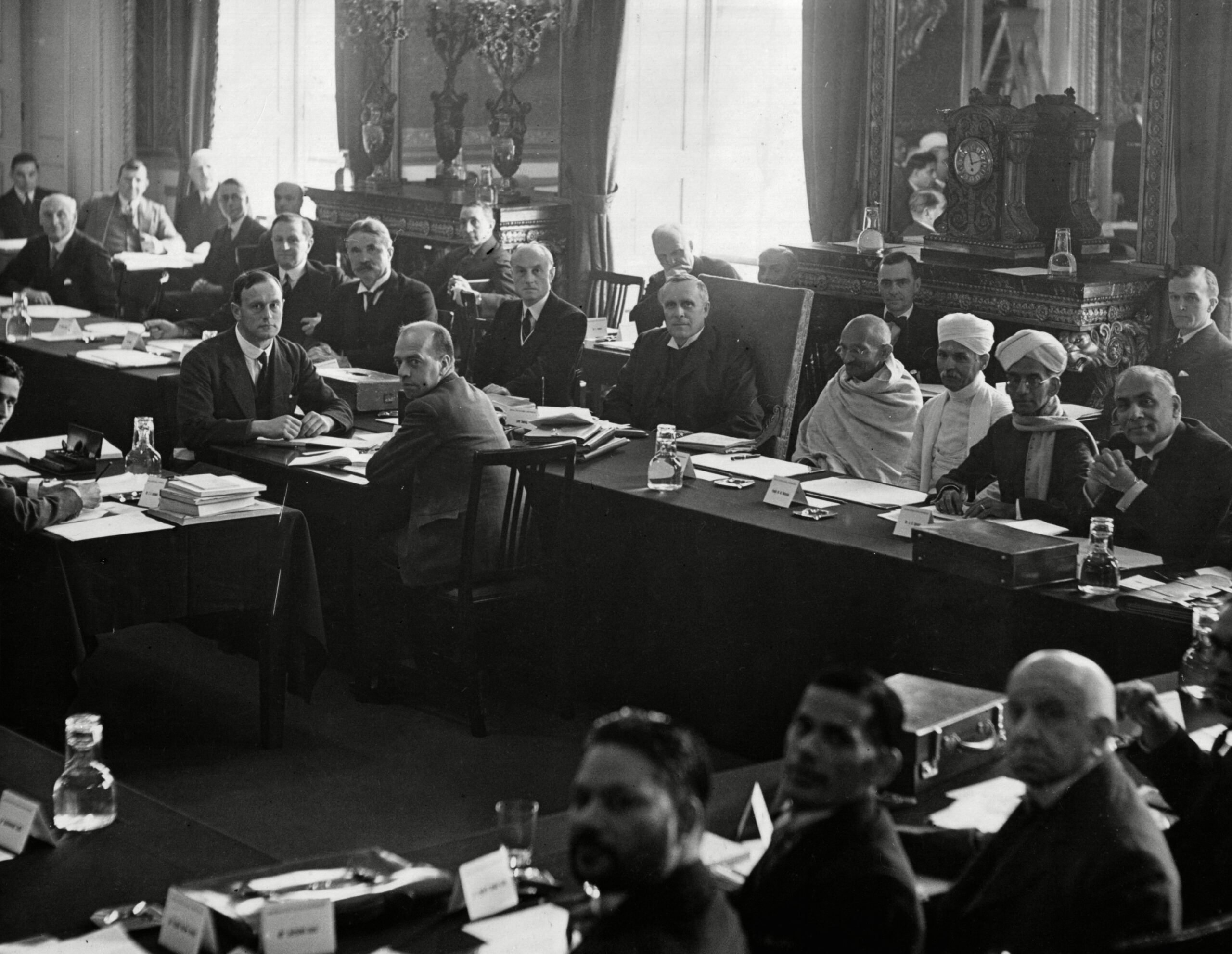Indian political representatives were consulted by the British government on plans for reform of the government of India. Differences between groups emerged on issues of religion and caste. The Muslim delegation led by Aga Khan III called for greater separate representation within the legislatures whilst B. R. Ambedkar representing Dalits (referred to as the ‘depressed classes’) also called for separate representation for Dalits.
Gandhi made the case that Dalits were Hindus and therefore did not merit a separate electorate. This reflected differences in interpretation between Gandhi and Ambedkar on Hinduism and what it represented. Gandhi’s dismissive attitude towards Ambedkar has been interpreted as reflective of the high-handed attitude of caste-Hindus towards Dalits.
Ambedkar was a Dalit making the case that they were systematically oppressed by caste-Hindus yet Gandhi could not see the irony of telling Ambedkar that Gandhi represented the vast mass of Dalits and not Ambedkar.
Addressing the Conference, Ambedkar said the following:
“Mr. Chairman, my purpose in rising to address this conference is principally to place before it the point of view of the depressed classes, whom I and my colleague, Rao Bahadur Srinivasan, have the honour to represent, regarding the question of constitutional reform. It is a point of view of 43,000,000 people, or one-fifth of the total population of British India. The depressed classes form a group by themselves which is distinct and separate from the Muhammadans and, although they are included among the Hindus, they in no sense form an integral part of that community. Not only have they a separate existence, but they have also assigned to them a statute which is invidiously distinct from the status occupied by any other community in India. There are communities in India which occupy a lower and subordinate position; but the position assigned to the depressed classes is totally different. It is one which is midway between that of the serf and the slave, and which may, for convenience, be called servile with this difference, that the serf and the slave were permitted to have physical contact, from which the Depressed Classes are debarred. What is worse that this enforced servility and bar to human intercourse, due to their untouchability, involves, not merely the possibility of discrimination in public life, but actually works out as a positive denial of all equality of opportunity and the denial of those most elementary of civic rights on which all human existence depends. I am sure that the point of view of such a community, as large as the population of England or of France, and so heavily handicapped in the struggle for existence, cannot but have some bearing on the right sort of solution of the political problem, and I am anxious that this Conference should be placed in possession of that point of view at the very start.”
Source: B. R. Ambedkar, ‘In the Plenary Session, fifth sitting-20th November 1930, Need for Political Power for Depressed Classes’, in Vasant Moon & Hari Narke (eds.), Dr. Babasaheb Ambedkar, writings and speeches, vol. II (Dr. Ambedkar Foundation: New Delhi: 2014), p. 503
Gandhi speaking on the caste system:
“I do not believe the caste system, even as distinguished from Varnashram, to be an ‘odious and vicious dogma.’ It has its limitations and its defects, but there is nothing sinful about it, as there is about untouchability, and, if it is a bye-product of the caste system it is only in the same sense that an ugly growth is of a body, or weeds of a crop. It is as wrong to destroy caste because of the out-caste, as it would be to destroy a body because of an ugly growth in it, or of a crop because of the weeds. The outcaste-ness, in the sense we understand it, has, therefore, to be destroyed altogether.”
Source: Mohandas Gandhi, ‘Dr. Ambedkar & Caste’ in Harijan, Vol. 1, Issue 1 (11 February 1933), p. 3


